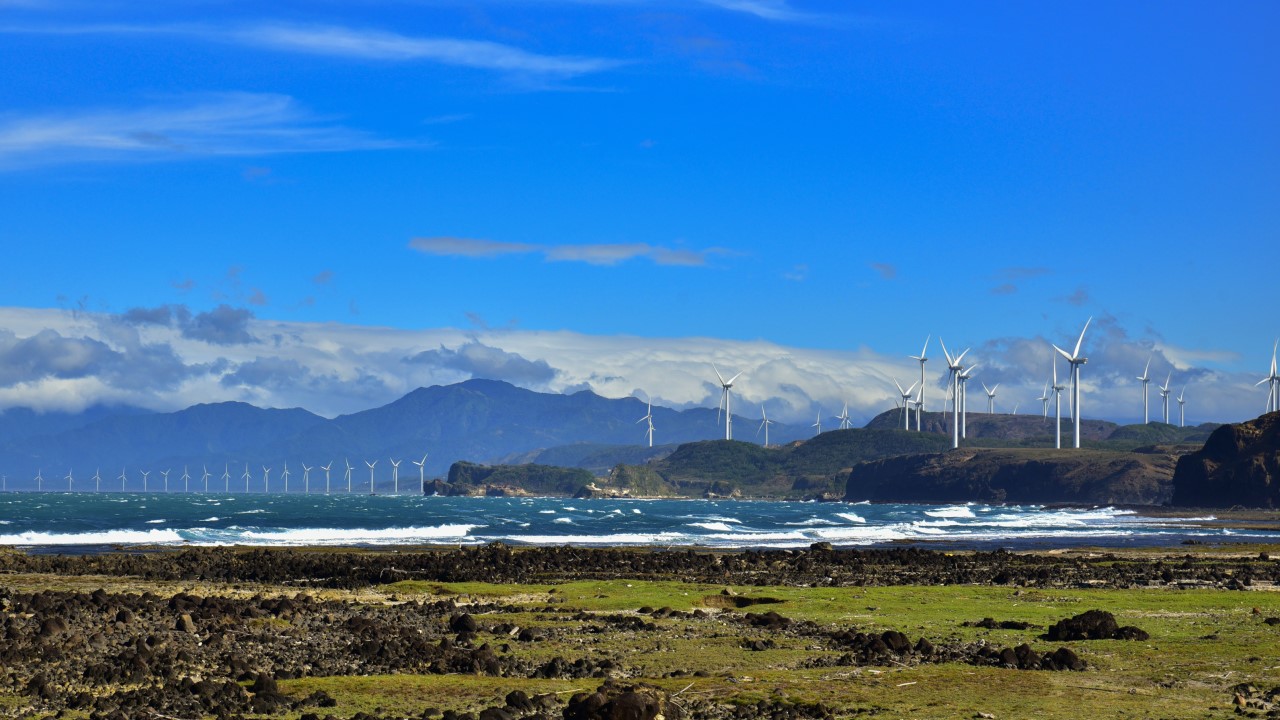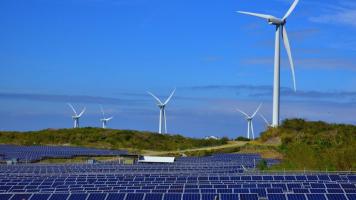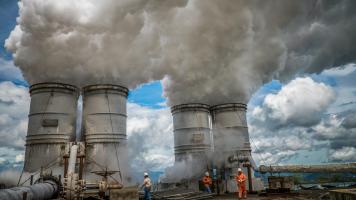
Renewable energy certificates can help accelerate the transition to clean energy and low carbon-growth by making renewable energy generation economically viable. Photo credit: Asian Development Bank.
Initial findings from a BIMP-EAGA study provide insights into creating a credible and sustainable regional REC system.
Integrating renewable energy certificate (REC) markets in ASEAN into a credible regional market faces several challenges. Creating a regional system, however, is key to spurring investments in a just transition in Southeast Asia.
Initial findings from the ongoing Renewable Energy Certificate System in BIMP-EAGA Countries Project (RECAP) provide insights into how a regional REC market may be established. The 2-year project of the ASEAN Centre for Energy, which covers Brunei Darussalam, Indonesia, Malaysia, and the Philippines, is backed by grant funding from the BIMP-EAGA–Republic of Korea Cooperation Fund (BKCF).
At the 2nd RECAP Regional Workshop in Bandar Seri Begawan on 4 September, the project team identified challenges in three critical areas: “discrepancies in national standards, alignment with international requirements, and lack of coordinated efforts across the region.”
As part of the study, the ASEAN Centre for Energy is developing a conceptual framework for a regional REC system for BIMP-EAGA countries. The project team discussed the key elements of the framework that will address the challenges. These include the following:
- establishing common REC instruments to ensure accounting and integrity of RECs in the region;
- putting in place rules and guidelines to ensure the regional REC system’s sustainability;
- institutionalizing coordination, oversight, and promotion of cross-border transactions; and
- integrating and harmonizing voluntary and compliance REC markets.
The workshop was held on the sidelines of the 11th BIMP-EAGA Power and Energy Infrastructure Cluster (PEIC) Official Meeting hosted by the Department of Electrical Services of Brunei Darussalam.
The RECAP project, which is expected to be completed in December, is seen as a catalyst for enhancing regional cooperation and dialogue on building a resilient and sustainable future for ASEAN. Southeast Asia, including the BIMP-EAGA subregion, has abundant energy resources. Its renewable resources include natural gas, hydropower, solar, biomass, wind, and geothermal energy. However, more than 90% of ASEAN’s renewable energy potential remains untapped.
Market-based mechanism
Earlier in the year, the ASEAN Centre for Energy held bilateral meetings with Brunei Darussalam, Indonesia, Malaysia, and the Philippines on RECAP and discussed the market opportunities offered by RECs and the benefits of a regional system.
An REC is a type of energy attribute certificate that is issued when a 1 megawatt hour (MWh) of electricity is produced and delivered to the power grid from renewable sources (e.g., solar, wind). It is used to track renewable electricity generation and consumption, and it also enables end-users to claim reductions in carbon emissions.
RECs can help accelerate a country’s transition to clean energy and its progress toward decarbonization targets by helping make renewable energy generation economically viable. REC trading provides an additional revenue stream to support renewable energy generation and development.
The demand for RECs in the voluntary market is increasing because of the requirements of corporate sustainability reporting. For example, companies participating in the RE100 program have committed to switching to 100% renewable electricity. RECs play a key role in monitoring clean energy usage.
Demand will also come from enterprises exporting to European markets, who want to avoid high tariffs. The European Union will fully implement the Carbon Border Adjustment Mechanism (CBAM) in 2026, which imposes import charges on products, such as steel, cement, and electricity, based on the carbon dioxide emissions embedded in their production.
An ASEAN REC system that capitalizes on the strengths of each member country is expected to increase the collected bargaining power of the region in trade agreements.
Multilateral power trading
A regional REC market is also expected to unlock ASEAN’s potential for multilateral renewable energy trading.
At the Asian Clean Energy Forum (ACEF) in June, Malchutar Kingnet, who heads the Renewable Energy Business Section at the Electricity Generating Authority of Thailand, said market integration can reduce the cost of RECs and make renewable energy more accessible and affordable.
The annual forum is organized by the Asian Development Bank.
“The ASEAN REC market is evolving with a strong push toward regional integration, supported by national initiatives and growing corporate demand,” Kingnet said. “However, achieving a fully integrated and internationally recognized REC market will require overcoming technical, regulatory, and infrastructural challenges.” Foremost is connecting national grids into a regional network.
Interconnecting national power systems to enable power trade is a key strategy of ASEAN to strengthen energy security and shift to renewables through efficient resource sharing. Along with market integration, it is seen as a critical component of a just and inclusive energy transition and for ensuring resilience and stability in the power grid and energy supply chains.
ASEAN is targeting to complete interconnection of the ASEAN Power Grid by 2045. One of the initiatives supporting this is the Brunei Darussalam-Indonesia-Malaysia-Philippines Power Integration Project (BIMP-PIP), which seeks to connect the four countries’ power grids and trade electricity by 2025.
The ASEAN Centre for Energy says enhanced integration through the ASEAN Power Grid could “avoid adding 154 MW of capacity, saving $1.87 billion, by 2025,” citing estimates of a 2010 study.

BIMP-EAGA
The Brunei Darussalam–Indonesia–Malaysia–Philippines East ASEAN Growth Area, or BIMP-EAGA, is a cooperation initiative established in 1994 to spur development in remote and less developed areas in the four participating Southeast Asian countries.


